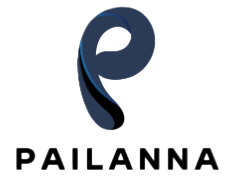In today’s increasingly digital world, the risks of cyber threats and data breaches are more prevalent than ever. The vast expanse of the internet, especially the dark web, presents a prime target for malicious actors seeking to exploit vulnerabilities. Personal, corporate, and governmental data are all at risk of being stolen, sold, or used for nefarious purposes. Protecting sensitive information from falling into the wrong hands has never been more critical. With cybercrime evolving at an alarming pace, the need for proactive, robust security measures has become paramount. One of the main challenges of securing data from the dark web is its anonymity. Unlike the surface web, the dark web is designed to be untraceable, making it a haven for hackers, fraudsters, and other cybercriminals. Personal information such as social security numbers, banking details, and even login credentials are regularly compromised and traded. This creates significant risks not just for individuals, but also for businesses and organizations that store valuable customer data.
Cybersecurity solutions that monitor and protect against Abacus darkweb activity have become indispensable for both individuals and organizations. These security solutions employ advanced techniques, such as dark web scanning, to track stolen or compromised data across the web. By continuously monitoring the dark web, these solutions can alert users when their personal or corporate information is being sold or exposed. Early detection is crucial in mitigating the potential damage from data breaches and identity theft, which can have devastating financial and reputational consequences. Beyond monitoring, effective security measures must also incorporate preventive steps to block unauthorized access to sensitive data. Encryption plays a key role in securing data from both theft and interception. Encryption ensures that even if data is intercepted by cybercriminals, it remains unreadable without the decryption key. Implementing multi-factor authentication MFA and strong password policies can further strengthen security by adding layers of protection that make unauthorized access more difficult. Security solutions also need to be adaptive and flexible to keep up with evolving cyber threats.
Hackers are constantly developing new methods to bypass traditional security measures, which means that the tools and systems used to combat these threats must be continuously updated and improved. Regular security audits, vulnerability assessments, and penetration testing can help identify and patch weaknesses before they can be exploited. It is also crucial to train employees and users on recognizing potential threats, such as phishing attacks, which are often the entry point for cybercriminals. For organizations, the cost of a security breach can be astronomical. Beyond the direct financial loss, businesses face the risk of brand damage, loss of customer trust, and potential legal consequences. The reputational damage caused by a data breach can lead to long-term consequences that are difficult to repair. By investing in security solutions that monitor the dark web and provide real-time alerts, businesses can prevent or mitigate these risks, safeguarding their operations and customer relationships. Proactive security measures help to maintain business continuity and build trust with customers, which is essential for long-term success.
